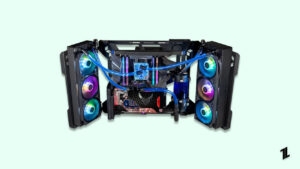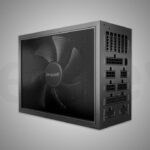Highlights
- When building a new PC, one of the most important decisions you’ll make is what type of case to use. There are two main types of PC cases: open and closed.
- Open PC cases have no side panels, which allows for better airflow and easier access to components. Closed PC cases have side panels, which provide better dust and debris protection and make the case more durable.
- So, which type of PC case is right for you? Read on to find out!
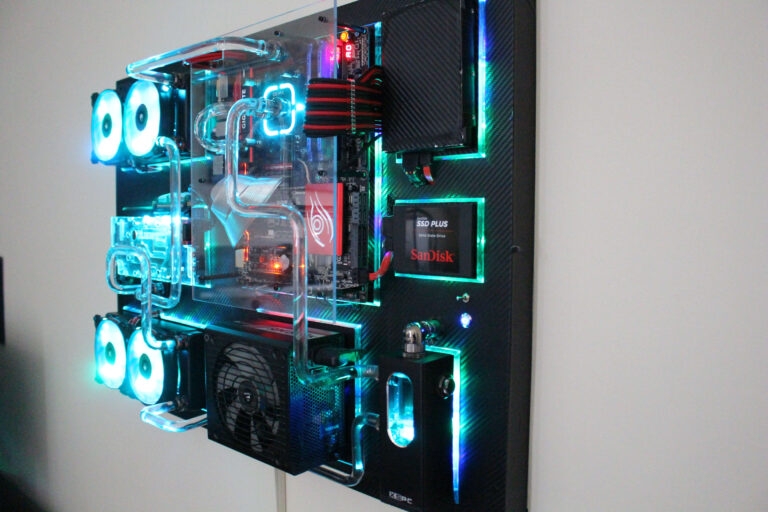
Building your own PC can be overwhelming. You’ll need to decide what type of case you want when you build a new PC: open or closed PC case?
The debate between open and closed PC cases often confuses people. But don’t worry!
In this article, we will compare Open PC Cases vs. Closed PC Cases in more detail so you can decide which is best for you. We will compare these two types of PC cases based on the following criteria:
- The Appearance
- Safety of Components
- Customisation And Upgrading
- Price
- Pros & Cons
Now let’s dive in!
Open vs. Closed PC Case: What They Are?
Before we dive into our comparison of closed PC cases vs. open PC cases, let’s first understand what they are!
Open PC Case
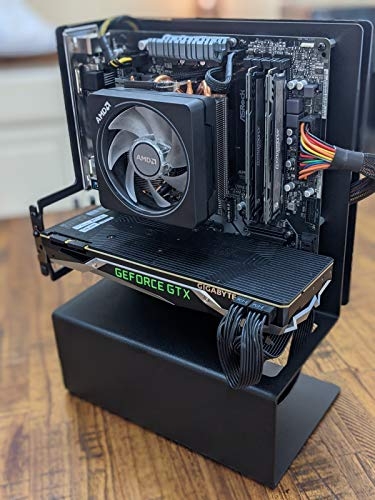
Open PC cases have no sides or have removable side panels, which allows for better airflow and easier access to the components inside. This makes them a good choice for high-end gaming PCs and other systems that generate a lot of heat. However, open PC cases are also more susceptible to dust and other debris, so they require more frequent cleaning.
Closed PC Case
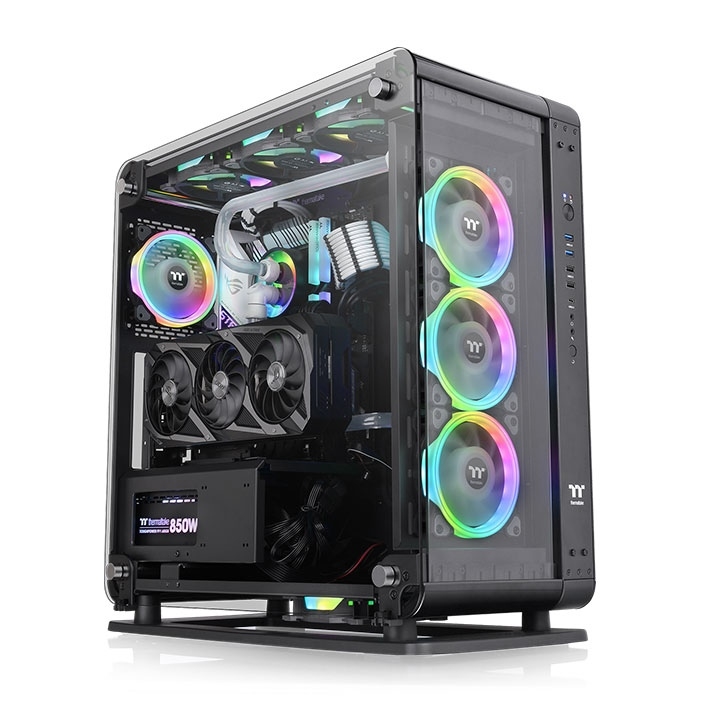
Closed PC cases have solid sides that protect the components inside from dust and other debris. This makes them a good choice for general-purpose PCs that don’t generate a lot of heat. However, closed PC cases can have less airflow than open PC cases, which can lead to overheating.
Open PC Cases vs. Closed PC Cases: A Detailed Comparison (2023)
As we mentioned, open PC cases and closed PC cases are two options to consider when selecting a PC case. Now let’s compare them based on appearance, component protection, customization and upgrading, and price!
Aesthetics
The design of a PC case plays a crucial role in the overall visual appeal of your computer setup.
An open PC case does not have a cover that completely covers the components. That means the components are exposed to the air. Often, these cases have unique designs.
Because the components are accessible, people can customize their cases and swap them with the ones they like. These PC cases allow for easy viewing of the internal components, RGB lighting effects, and intricate cable management.
On the other hand, closed cases are more commonly found. They have a boxy shape and enclose all the components inside. They feature a solid structure with sides, front, and back panels that enclose the computer’s internal components.
The size of closed cases varies depending on the components and cooling system used. They come in compact mini-towers, mid-towers, and full-towers, so you can get one that fits your needs. These PC cases can be made of different materials. You can find ones with fancy tempered glass side panels.
Components Protection & Safety
When it comes to component safety, open cases are less secure. They provide less safety for components because they lack a protective casing. This means the components are exposed to potential damage from impacts. Open cases also tend to collect dust and dirt easily, which can harm the components.
If you have pets at home, their fur can get into the components of an open case, which is not good for their safety.
Closed cases, on the other hand, are safer for components as they have a protective casing that shields them from unexpected impacts. Closed cases also help prevent dust and dirt from accumulating, keeping the components safer.
As a result, closed PC cases provide more safety for the components than open cases.
Customisation And Upgrading
As mentioned earlier, open PC cases offer users a lot of accessibility to their components. This means that it’s easy for users to make changes and upgrade their PC components whenever they want. It’s also easy to customize the case itself. You can easily swap out components for the ones that you prefer.
If you want to make your case look more appealing, you can add a glass side panel or components with RGB lighting. However, closed PC cases are designed to fit specific components, so it’s not always a good idea to upgrade them with components that don’t fit properly. Doing so could lead to problems like overheating.
If your case is made of an opaque material, there’s not much you can do to enhance its appearance. But if it has tempered glass sides, you can add RGB lighting to make it look more visually pleasing.
Price
Closed PC cases are more expensive because they offer better aesthetics and protection for internal components. Open cases are cheaper because they prioritize functionality over looks and protection. However, you can find affordable open cases that still provide decent component protection.
Ultimately, the choice between open and closed cases depends on your budget and needs. PC cases can range in price from $30 to around $100, depending on the features and brand.
In my opinion, closed PC cases are worth the extra money because they look better and provide better protection for components. However, if you’re on a budget, an open case can still be a good option for your PC.
Open PC Case vs. Closed PC Case: Pros & Cons
We have compared open and closed PC cases in detail. Now let’s summarize their pros and cons.
Pros and Cons of Open PC Case
Easy to access and upgrade components.
Better airflow, which keeps your components cooler and prevents them from overheating.
A little bit pricey.
It can be quite noisy.
More susceptible to dust buildup.
Less secure, as your components are more exposed.
Pros and Cons of Closed PC Case
Reduced Noise.
Beautiful look due to RGBs.
More secure, as your components are less exposed.
Better protection against pets, insects, dust, moisture, and any physical damage.
Poor Airflow, which can lead to overheating.
More difficult to access and upgrade components.
Open PC Cases vs. Closed PC Cases: Which One is Better?
In our opinion, closed PC cases are a better choice because they not only look more attractive but also provide greater safety for your computer components. Unlike open PC cases, closed cases provide protection and help reduce the risk of damage. In addition, if your PC is placed in an easily accessible area, closed cases offer additional security compared to open cases.
Another advantage of closed cases is that they keep your components cleaner for longer periods. This means you won’t have to clean your PC as frequently, which can be a hassle for some people.
On the other hand, open PC cases tend to collect dust and debris more frequently. If you live in a location with air pollution, like me, opting for an open PC case may not be the best decision.
But open PC cases have their advantages for certain users. They tend to have fewer issues with overheating, which is excellent for gamers. Additionally, open cases are a better option for gamers who frequently upgrade their setups or for technology enthusiasts who enjoy testing out the latest PC components.
Conclusion
As you can see, we have provided a detailed comparison of open PC cases vs. closed PC cases. Both types of PC cases have their pros and cons, so it’s crucial to choose the right one for your needs and preferences.
Based on what we’ve seen, open PC cases are better for gaming because they allow for better airflow, which helps keep graphics cards and CPUs cool. So if you’re a gamer and want to prioritize cooling, an open case might be better for you.
In contrast, closed cases protect components and keep out dust, making them suitable for regular use. Therefore, if you’re worried about dust or damage, go with a closed case.
Ultimately, consider your needs and make a decision based on that.
Further Reading:
Directly in Your Inbox



